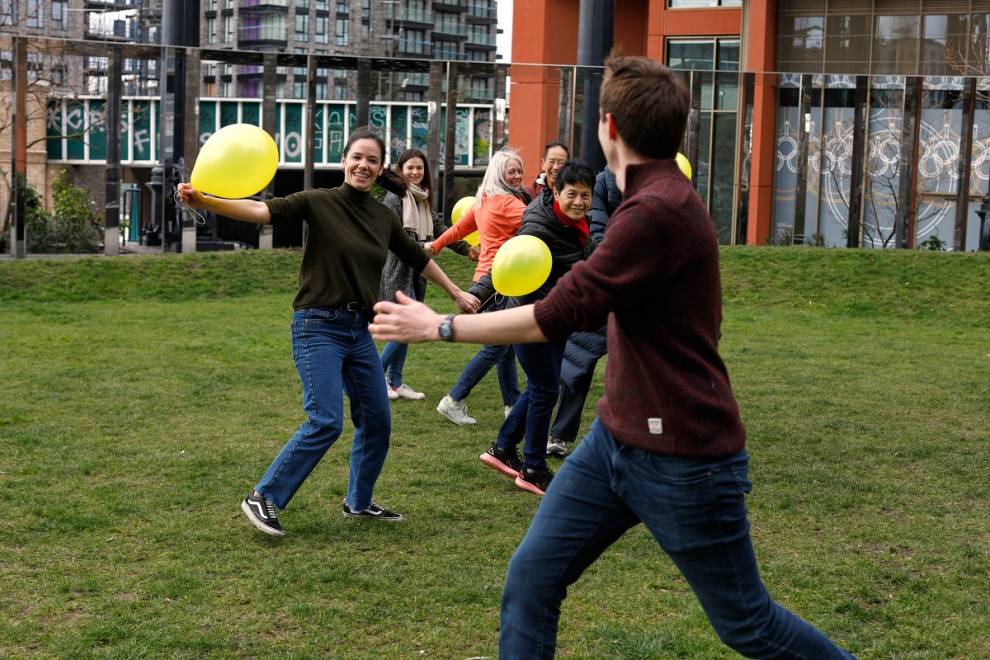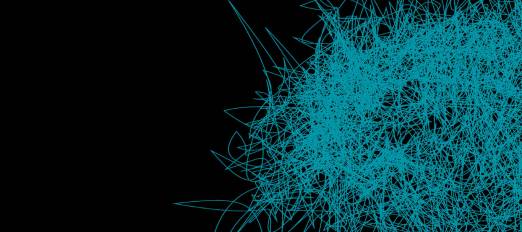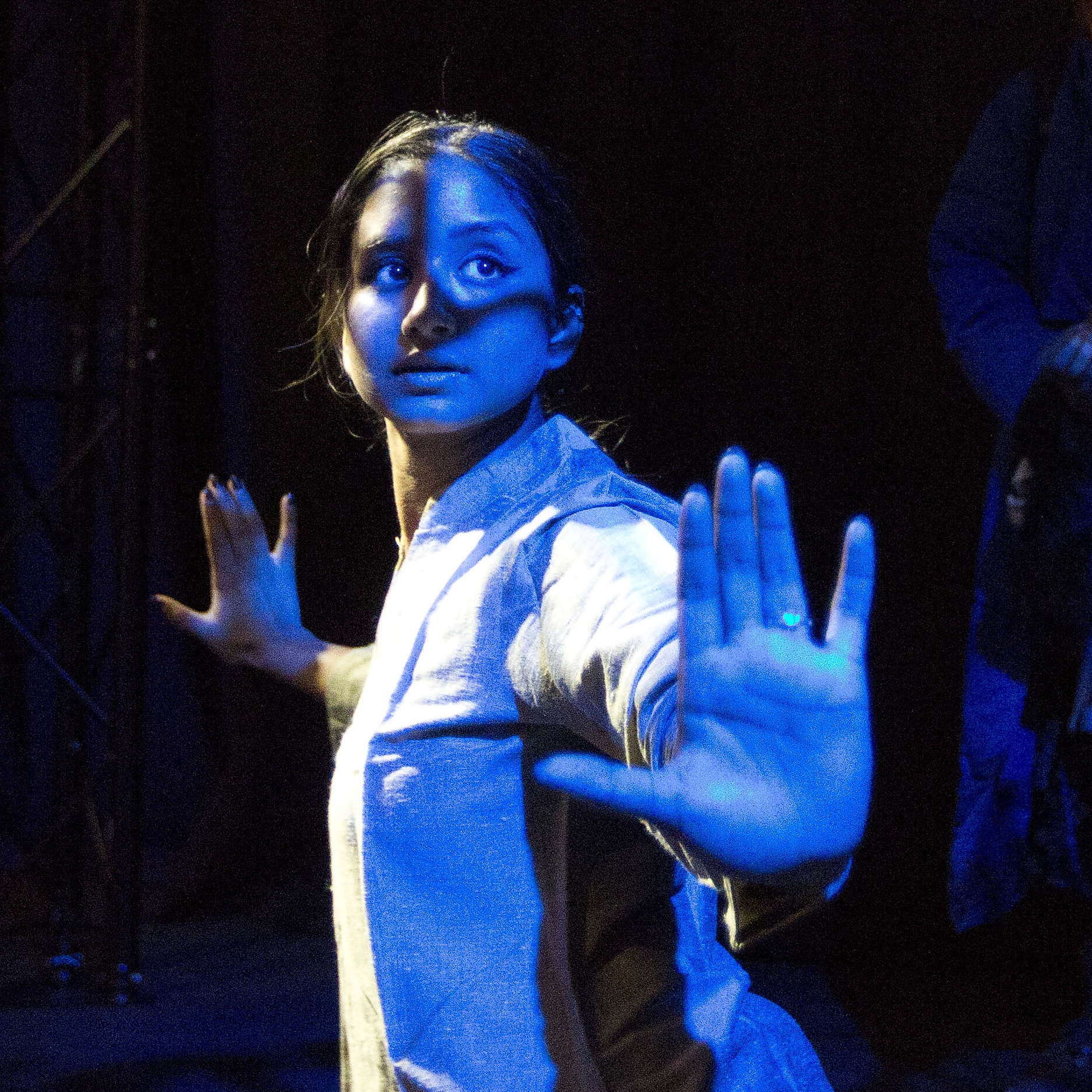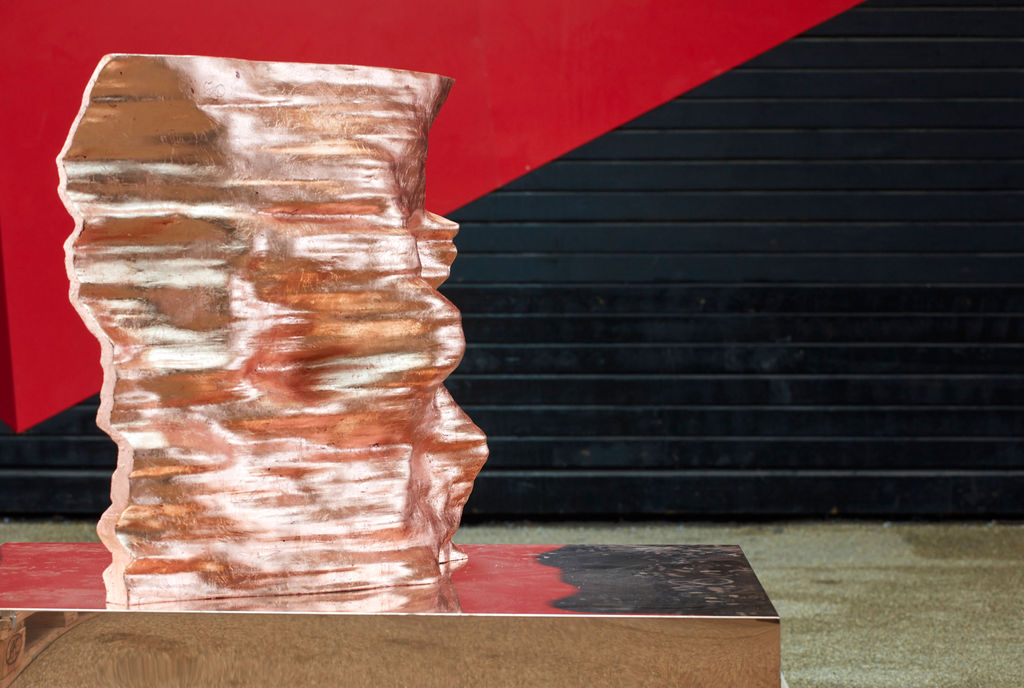
Part of UCL Culture’s Performance Lab, Performing Place brings together live performance artists, Camden communities and researchers in the co-creation of live performance. The initiative began in October 2019 with the commissioning by UCL Culture of four Performing Place projects:
• Rhythms of Fractals & Collective Movement
• The Dancing Brain
• You Move Me
• Sound Voice: Voice Loss and Identity
Performing Place aimed to build relationships between UCL researchers, the people of Camden and external researchers; create opportunities for knowledge exchange between artists, academics and the people of Camden; and build the skills and experience of artists, researchers, and relevant stakeholder communities by working together.
Funding
Funding came from the Engineering and Physical Science Research Council (EPSRC) Impact Acceleration Account 2017-2022, which aims to support activities focused on collaboration and knowledge exchange between relevant external partners and the UCL research community who have or have previously had EPSRC funding. All projects included at least one researcher who is or has previously worked on EPSRC funded research.
Projects
Over the first few months of the project, artists and researchers began to develop working relationships and delivered workshops and knowledge exchange sessions with community groups.
Due to the COVID-19 pandemic, a two-week programme of Camden-focused performance, discussion and workshopping in May 2020, including the Performing Place commissions, was unable to take place.
Instead, the project teams worked to continue developing their projects in new ways. Some workshops took place online, one artist and researcher wrote letters to each other, and others continued their research virtually.
- The Dancing Brain – Dr Bani Anvari & Suba Subramaniam
The Dancing Brain
The Dancing Brain combined hand gestures and rhythm with mind-controlled virtual robots to enable improved social interaction and coordination among young students and people with complex learning difficulties. By transposing/translating /transcribing a message from the mind of one participant to the peers through movement, The Dancing Brain aimed to encourage young students that STEM is fun, and empower people with dementia to create a conversation and dialogue with their peers. This is a cross-disciplinary collaboration between Akademi and the Intelligent Mobility’s group/lab at UCL (IM @UCL).
- Rhythms of Fractals & Collective Movement – Dr David Hewett, Dr Angelika Manhart & Bernhard Schimpelsberger
Rhythms of Fractals & Collective Movement
This collaboration investigated how the wave patterns we study mathematically might be translated into musical rhythms. Camden-based mathematicians and musicians explored the connections between waves and rhythms and contributed their own musical ideas and perspectives.
- You Move Me – Dr Ellie Cosgrave & Laura Wilson
You Move Me
This cross-discipline collaboration builds on Dr Cosgrave’s existing urban research on the interrelationship between gender and urban infrastructure; and Laura Wilson’s research around civic histories and labour, how information is passed on from one person to another through movement and recent performances investigating how the body learns, adapts, responds and performs. Cosgrave and Wilson worked together with Camden residents to explore their personal relationship with mobility in the city and how this also relates to their personal histories.
- Sound Voice: Voice Loss and Identity – Professor Martin Birchall, Dr Thomas Moors, Shout at Cancer & Hannah Conway
Sound Voice: Voice Loss and Identity
Sound Voice: Voice Loss and Identity is a cross disciplinary collaboration spanning healthcare, opera, (a composer and team of professional artists), music therapy, UCL speech therapy and UCL music research via the medium of artistic residencies involving music composition, creative writing and vocal performance and experimentation. This rich blend of the arts and science, building on the experiences and narratives of both those who have experienced loss of laryngeal function and the healthcare professionals who dedicate their careers to finding answers, explored what it means to lose and regain voice and why singing is a human right.
 Close
Close




